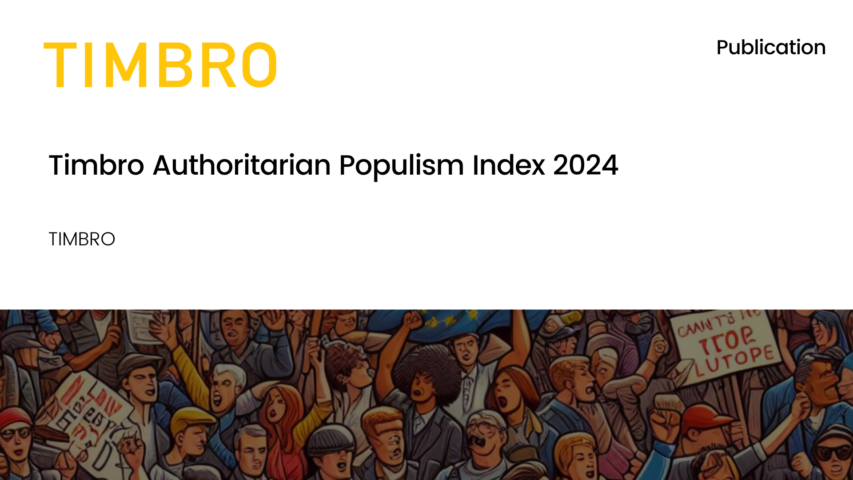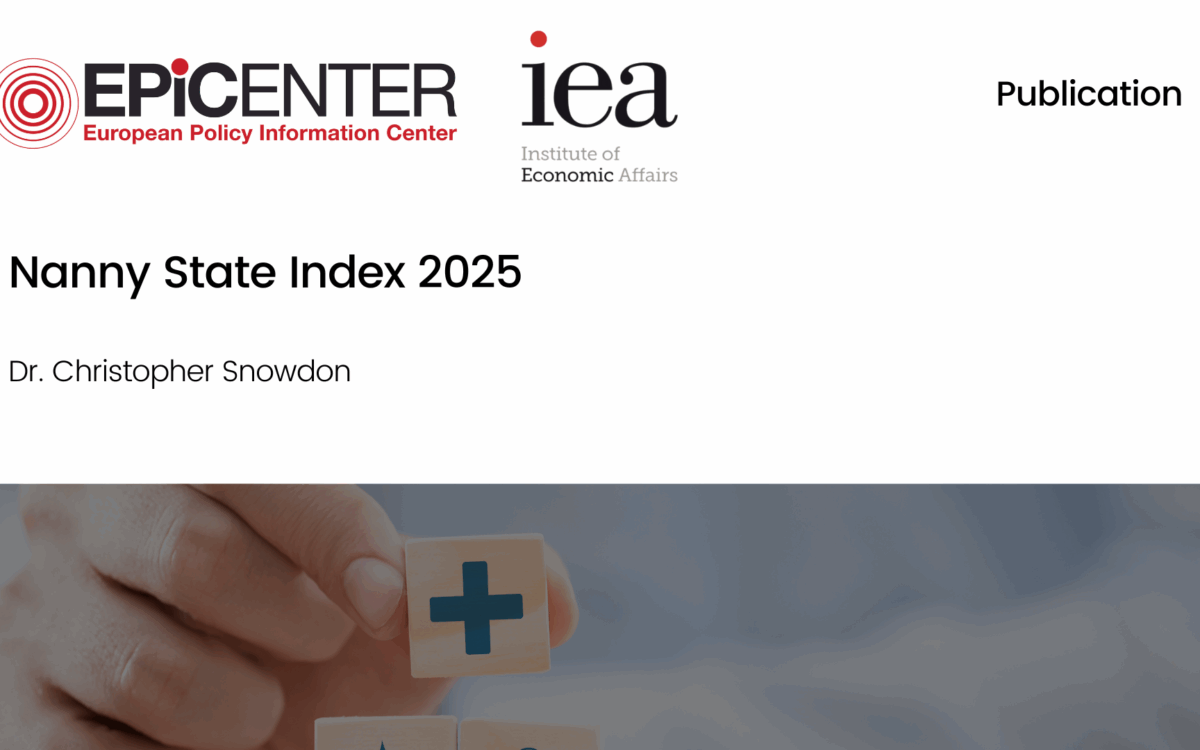TIMBRO Authoritarian Populism Index 2024

Timbro Authoritarian Populism Index 2024
Andreas Johansson Heinö // 16 April 2024
Download or share this publication
View the PDF
EPICENTER publications and contributions from our member think tanks are designed to promote the discussion of economic issues and the role of markets in solving economic and social problems. As with all EPICENTER publications, the views expressed here are those of the author and not EPICENTER or its member think tanks (which have no corporate view).



